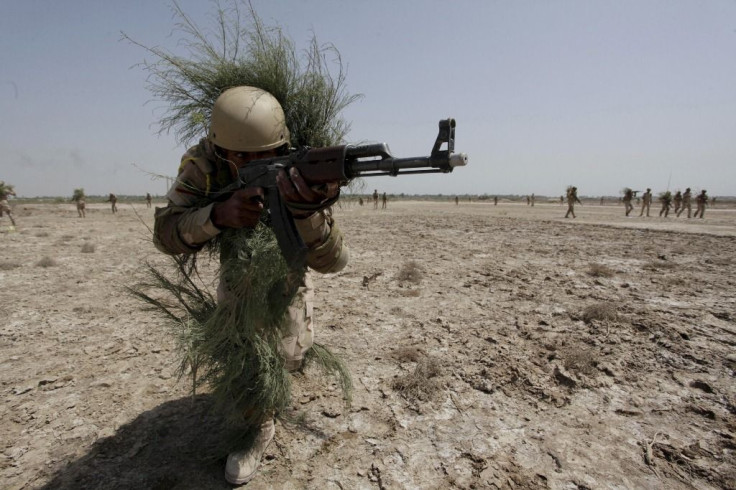Islamic States Losing Ground In Iraq, Pentagon Claims

The Pentagon said the Islamic State is losing ground in Iraq. According to U.S. officials, IS lost around 25 to 30 percent of its urban territory in Iraq due to the U.S.-led air strikes since September 2014.
Pentagon officials said on Monday that the Middle Eastern extremist group had been driven away from major areas like Baghdad, Babil, Erbil and Kirkuk governorates. IS forces reportedly lost around 8,000 to 9,700 square kilometres of territory after the counter-offensive had started.
Army Colonel Steve Warren said that the U.S. intervention had driven the militant group back in a "somewhat meaningful way." "The combination of coalition air power and Iraqi ground forces are having an effect on the enemy's ability to hold territory and to have freedom of manoeuvre," Warren said.
Iraqi security forces earlier claimed that it recovered 40 percent of the territory it had lost in Anbar province. IS fighters, on the other hand, captured two districts to the north of the city of Ramadi despite the Iraqi government’s on-going offensive. The Middle Eastern militant forces are still in possession of important areas like Fallujah and Mosul, Iraq’s largest city.
Iraqi Prime Minister Haider al-Abadi is scheduled to meet the U.S. President Barack Obama on Tuesday. The Iraqi PM will apparently ask for additional U.S. support with weapons like fresh stocks of ammunition, Apache attack helicopters and drones. The weapons will be used to strengthen Iraq’s fight against IS forces.
Even though IS forces have been steadily losing ground in Iraq, Warren said that it might be early to declare that the U.S.-led coalition and the Iraqi government are winning the battle. He said that the combination of coalition air power and Iraqi ground forces were having an effect on the enemy's ability to hold territory and have freedom of movement.
Warren said that it was not yet possible to clear Tikrit completely off IS fighters. However, he believes that it will soon be done. According to Warren, it is “still early” to come to a conclusion as it a “long fight.” He said that he was not prepared to say that the “tide of battle” had turned.
Contact the writer: s.mukhopadhyay@ibtimes.com.au




















